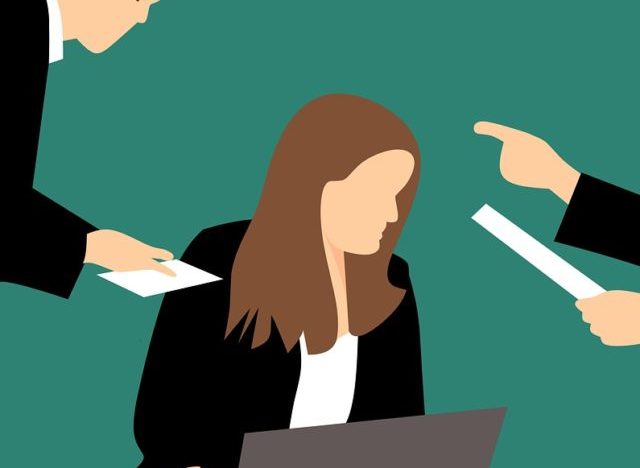
Is there a difference between calling people out on their mistakes and bullying?
In trying to promote social justice, people tend to fight fire with fire. When you call out someone, you express your views and criticize theirs. But when does it become bullying?
1. It becomes bullying when you call out someone for your own ego.
Some people can be so self-righteous. They call someone out to gain admiration and praise from other people. They want to feel superior and they just want to be right. What then happens is they force their beliefs on that certain person just because their views are not the same. In Hannah Gadsby’s Netflix Standup “Nanette,” she addressed a similar situation. “We think it’s more important to be right than it is to appeal to the humanity of people we disagree with,” she says. That is exactly what toxic call-out culture is: You don’t give people a chance to share their opinions and that’s similar to denying them their right to freedom of speech. What’s worse is when you don’t consider these people as human beings. You then become a bully to that person.
2. You don’t choose your battles.
“Not everything and everyone deserves your reaction” is the perfect quote for this. Sometimes, people are really that naive to realize that they did something wrong. Or people just don’t want to change. You may call them out, but that doesn’t guarantee that they will take your advice. In those cases, just direct your energy to something else and know that you did what you had to do. It’s already up to them if they will do something about it or not. You don’t need more emotional exhaustion and you certainly don’t need to bully someone to get them to agree with you.
3. When you think people are insulting you so you respond negatively.
When someone calls you out, it’s so easy to feel ashamed or angry so you work on trying to bring them down. But there are times when you think that someone is trying to insult or degrade you, they’re actually just helping you out. It’s important to know the difference and it’s important to check yourself too if you possess some toxic traits. I used to have an attitude where I get mad whenever people try to correct me. I get so sensitive and I always feel that they are attacking me. But I’ve grown from that attitude and I’ve realized that I’m not always going to be right and that some people might know better than me. In times like that, we just have to be teachable. We, as human beings, mess up a couple of times before we learn from our mistakes. But what’s great is that people give us another chance, and in those moments you just have to think that people weren’t actually bullying you, they’re just trying to help you.
4. It also becomes bullying when you try to call someone out and pass judgment on that person’s entire being.
You make unnecessary comments about their life and try to involve their past. You’re attempting to destroy a person’s life. This means that you’re attempting to destroy that person’s life. This becomes bullying because you try to provoke a person and cause harm to them. On Asam Ahmad’s 2015 essay on “What Makes Call-out Culture So Toxic”, it says there that “In the context of call-out culture, it is easy to forget that the individual we are calling out is a human being and that different human beings in different social locations will be receptive to different strategies for learning and growing.” And he’s right. Calling someone out doesn’t have to be this toxic. It doesn’t have to publicly humiliate someone else. I get that we get angry sometimes to certain injustices, but this anger that we feel is causing more harm than good. We might have a tendency to feel more anxious and depressed.
In calling someone out, we don’t have to destroy human beings. We don’t have to be a bully, no one is perfect and people are allowed to change. Calling someone out does not have to be used as a tool for bullying. We can always criticize someone without jeopardizing them.
Photo by Pixabay
For the latest in culture, fashion, beauty, and celebrities, subscribe to our weekly newsletter here
Follow Preen on Facebook, Instagram, Twitter, YouTube, and Viber
Related stories:
Instagram announces a new anti-bullying feature
What does the law say about cyberbullying minors?
Raising kids in the age of call-out culture
5 simple habits that changed my life and helped my inner peace
Best of: The highs and lows of social media


